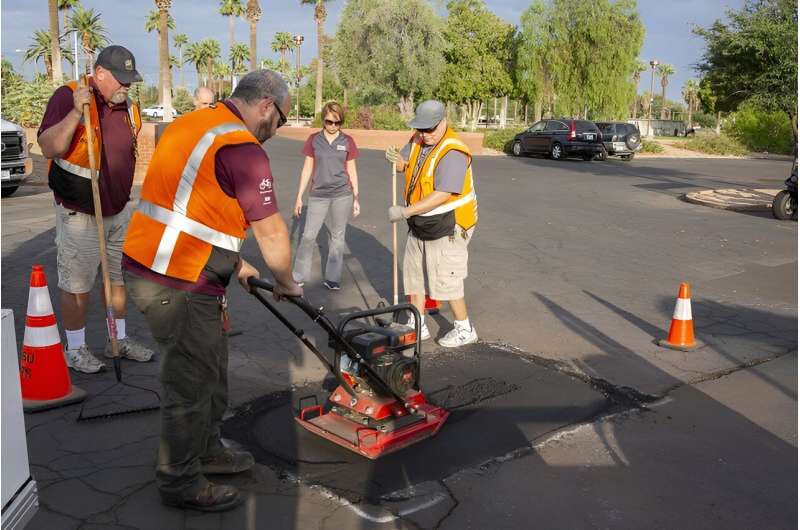You can try and define human beings in gazillion different ways, but where you are likely to be most accurate is when you mention their willingness to get better under all circumstances. This unwavering commitment …
You can try and define human beings in gazillion different ways, but where you are likely to be most accurate is when you mention their willingness to get better under all circumstances. This unwavering commitment towards growth has brought the world some huge milestones, with technology emerging as quite a major member of the group. The reason why we hold technology in such a high regard is, by and large, rooted in its skill-set, which guided us towards a reality that nobody could have ever imagined otherwise. Nevertheless, if we look beyond the surface for one hot second, it will become abundantly clear how the whole runner was also very much inspired from the way we applied those skills across a real world environment. The latter component, in fact, did a lot to give the creation a spectrum-wide presence, and as a result, initiated a full-blown tech revolution. Of course, the next thing this revolution did was to scale up the human experience through some outright unique avenues, but even after achieving a feat so notable, technology will somehow continue to bring forth the right goods. The same has turned more and more evident in recent times, and assuming one new discovery ends up with the desired impact, it will only put that trend on a higher pedestal moving forward.
The researching team at Arizona State University has successfully developed a new, patent-pending asphalt binder called AirDuo, which is designed to cut back on toxic fumes of the overall asphalt-surfaced area and enhance its sustainability. Before we get into the development itself, though, we must look into a US Department of Labor’s Occupational Safety and Health Administration’s report where it was claimed that about a half-million workers annually are exposed to fumes from asphalt, fumes that give them various health problems including headache, skin rash, fatigue, throat and eye irritation, cough, and even something as serious as skin cancer. So, how does AirDuo solve this conundrum? You see, asphalt binder is the glue that holds together the stones, sand, gravel, and other aggregates in asphalt pavements, but up until now, we have been forced to use harmful petroleum products to manufacture the stated glue. However, AirDuo marks a shift away from that approach, considering its binding mixture is notably composed of low-carbon and bio-based materials.
“We breathe 11,000 liters of air per day. But our nose isn’t smart enough to know when the air may be dangerous for our health. That new-car smell people like? That may not be good for your lungs. We run away from a smelly trash can, but the pleasant smell or fumes from certain materials can be far more toxic,” said Ellie Fini, associate professor in the School of Sustainable Engineering and the Built Environment (SSEBE).
In order to best inform their solution, the researchers reviewed literature about the health effects emerging from various asphalt mixtures and mapped the effects on a network of biomarkers. This revealed to them specific contaminants in the asphalt, contaminants that are not created equal, and therefore, have different levels of toxicity. Once they knew enough regarding how such detrimental elements help bind the asphalt, the researchers were able to conceive an alternative iron-rich biochar, which has shown an ability to absorb volatile organic compounds from asphalt surfaces.
“The use of algae in the AirDuo binder provides a critically important environmental benefit. As algal photosynthesis removes carbon dioxide from the air, the AirDuo manufacturing process retains that carbon in an improved asphalt product relative to petroleum-derived binders,” said Peter Lammers, a research professor in SSEBE.
Among other bio-based materials used to create AirDuo, the team leveraged biochar from fire-reduction efforts in California and northern Arizona.
“AirDuo represents a complete sustainability package,” Fini explained. “We are using biomass as our feedstock—it has already pulled CO2 from the air prior to harvesting. The AP1 helps create a sustainable built environment and provides reduced health risks to both asphalt workers and those using asphalt-surfaced areas.”
The researchers have already put their latest brainchild through some initial tests, and going by the available details, they observed a nearly 70% reduction in emission when AirDuo was used. Another thing they noticed was how the new mix had notably less smell than any other mix in the plant.
According to certain reports, National Science Foundation on algae-derived products funded the early stages of the research, whereas the US Department of Agriculture with a focus on emission reduction and environmental health came in later to support the process and facilitate a rather smooth lab-to-market transition.
When quizzed regarding the technology’s future, Fini responded by saying:
“Our next steps are larger projects on the ASU campus, and then perhaps in Flagstaff and Tucson. Our team invites other states and institutions to join the AP1 (AirDuo Paving) campaign and test it on their sites, too.”




